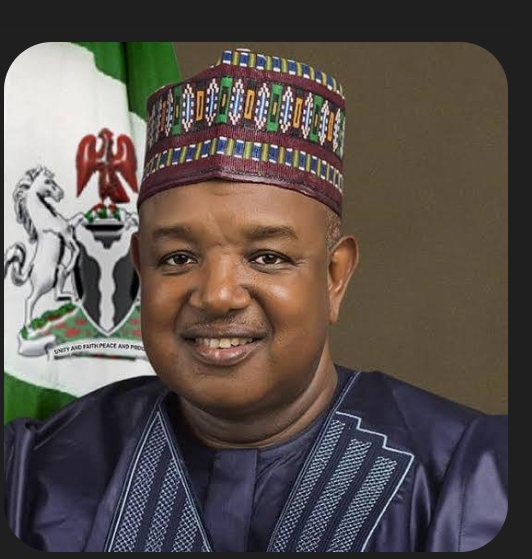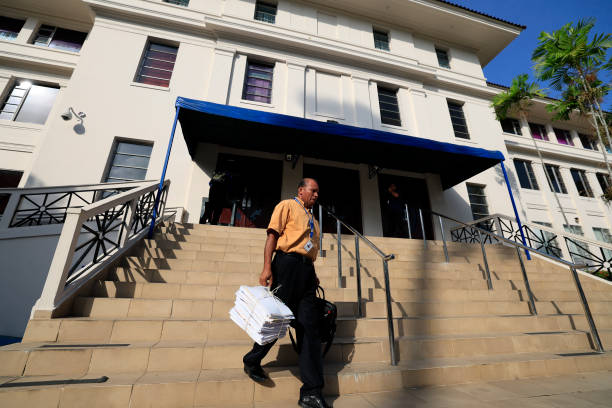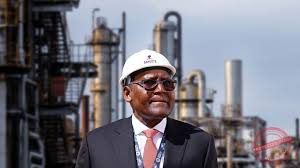Minister of Budget and National Planning, Senator Atiku Bagudu, has said Nigeria must attract at least $100 billion in combined public and private investments annually to achieve the ambitious targets of its Agenda 2050 development framework.
He warned that without bold choices and stronger synergy between the legislature and the executive, the nation risks falling further behind its peers in global economic competitiveness.
Bagudu made the remarks on Tuesday, September 16, at a one-day policy dialogue on “Deepening Legislative-Executive Synergy for Effective Economic Governance in Nigeria,” organised by the National Institute for Legislative and Democratic Studies (NILDS), an arm of the National Assembly.
According to the minister, Agenda 2050, which sets the target of transforming Nigeria into a middle-income country by the year 2050, is not an over-ambitious plan but a realistic pathway to prosperity. The blueprint envisions a GDP per capita of $33,000 and an economy driven by sustained productivity and investment.
“We calculated that to achieve this objective, Nigeria requires at least $100 billion investment per annum from both the private and public sectors. Agenda 2050 is structured into six medium-term plans, beginning with 2021–2025 and moving in five-year phases until 2050,” Bagudu explained.
He emphasised that Nigeria’s present fiscal profile underscores the urgency of reform.
“As of June 2023, our revenue-to-GDP ratio stood at 9 percent, one of the lowest in the world, compared to the EU average of 31 percent. That has now risen to 16 percent due to recent reforms, but we are still punching below our weight,” he noted.
The minister drew comparisons with other nations, highlighting the gulf in budgetary allocations.
“Brazil, a federation like Nigeria, has a federal budget of about $700 billion, while ours is just $36 billion. Japan, with roughly half of Nigeria’s population, spends over $20 trillion annually. These disparities explain why outcomes are inevitably different,” he said.
Bagudu insisted that the renewed hope agenda of President Bola Tinubu is a deliberate attempt to reverse years of weak fiscal capacity and systemic distortions.
He cited bold steps already taken, including fuel subsidy removal, foreign exchange market liberalisation, and tax reforms, as evidence of the administration’s resolve to restore macroeconomic stability.
“President Tinubu has demonstrated that the dream is realisable. He has taken risks never attempted in developing countries at the same time, and results are beginning to show. Our task now is to mobilise the legislature, private sector, and the Nigerian people to sustain these reforms,” Bagudu added.
He warned, however, that Nigeria’s constitutional and federal structure requires unity of purpose among all tiers of government. Citing Section 13 of the 1999 Constitution, the minister argued that economic objectives are binding on the legislature, executive, and judiciary.
“Our constitution has provided an irreducible minimum of national consensus. Chapter Two may be said to be non-justiciable, but it is morally binding. Every oath of office compels leaders to uphold these objectives,” he declared.
The minister also announced that the federal government has launched a ward-based development programme that will map economic opportunities across Nigeria’s 8,809 wards.
The initiative, he said, is not a palliative scheme but a rigorous effort to formalise small-scale enterprises, empower farmers and artisans, and create jobs at the grassroots.
“We must ensure that millions of hardworking Nigerians, who wake up as early as 4 a.m. daily, get commensurate reward for their efforts. Distortions in trade, poor access to credit, and outdated skillsets must be addressed to lift people out of poverty,” Bagudu stressed.
Earlier, NILDS Director-General, Prof. Abubakar Sulaiman, said the policy dialogue was convened to foster stronger alignment between legislative oversight and executive reform priorities.
He explained that Nigeria’s economic fragility, manifested in high inflation, debt servicing pressures, currency volatility, and weak growth, demands a united front from both arms of government.
He said, “The dialogue is not only about diagnosing problems but also about providing actionable recommendations for building a resilient economic governance framework.
“The legislature must use its budgetary and oversight powers to reinforce reform implementation and safeguard accountability,” he added.
Participants at the dialogue, including members of the National Assembly, academia, private sector representatives, and civil society leaders, underscored the importance of evidence-based policymaking, domestic resource mobilisation, and export diversification in driving sustainable growth.
The event concluded with a consensus that Nigeria’s economic future hinges on bolder reforms, deeper collaboration between institutions, and the mobilisation of citizens to own the national development agenda.
For Bagudu, however, the central message was clear: “We cannot grow without resources. If we unite our ambitions with the discipline to mobilise $100 billion annually, there is no reason why Nigeria cannot achieve a $1 trillion economy by 2030 and a middle-income status by 2050.”




